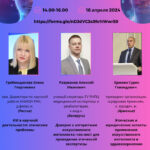There was held a public lecture by Tatsiana Navitskaya «The problems of moral autonomy, exploitation and alienation of women in the programs of assisted reproductive technology (in the context of Marxism and feminist bioethics)»

A public lecture by researcher of the Center of Social-philosophical and Anthropological Research Tatsiana Navitskaya «The Problems of Moral Autonomy, Exploitation and Alienation of Women in the Programs of Assisted Reproductive Technology (in the Context of Marxism and Feminist Bioethics» was held on June 19, 2019 in the Intellectual Club at the Institute of Philosophy «Women in Philosophy». There was made an attempt to reveal the relationship between the phenomena of exploitation, alienation and autonomy of women, who participate in reproductive projects of other people through the use of germ cell donation and surrogate motherhood. The ideas of the Marxist concept of alienation, feminist analysis of labor and feminist bioethics made the methodological base of research.
In order to get acquainted the audience with the problems of assisted reproductive technology, the author made the introduction to the history of their development: the key stages were determined, the advanced scientific developments in this area were indicated. Analysis of the existing approaches to determination and assessment of the tasks of assisted reproductive technology let to identify the key areas in their understanding: as a catalyst of social change, indicator of social inequality, and a tool in the context of biopolitical strategies.
Particular attention was paid to the legislative issues of assisted reproduction. There was analyzed the international experience of formation of the legal field, which regulates the procedures of egg donation and surrogacy practices. The focus was on such documents as Resolution of The Report of the Ad Hoc Committee of Experts on Progress in the Biomedical Sciences (CAHBI) (1989), Convention for the Protection of Human Rights and Dignity of the Human Being with regard to the Application of Biology and Medicine: Convention on Human Rights and Biomedicine (1997), Act on the Protection of Embryos (Germany, 1990). There were also announced the results of comparative analysis of the legislation of the Republic of Belarus and the Russian Federation based on the criterion of the degree of alienating effects on surrogate mother and use of her vulnerable position.
In conclusion of the report, Tatsiana Navitskaya turned to consideration of the images of surrogate mothers in the media. She noted that if egg donation can remain anonymous, a woman’s private matter, then surrogate motherhood is ambiguously evaluated in culture. Such experience can serve as stigmatizing such women. The author emphasized the relevance of further research of ethical and legal aspects of assisted reproductive technologies, the status of female egg donors and surrogate mothers, conditions, in which their alienation and distancing from their own reproductive organs and processes, from the born child can be reduced.
The report aroused interest of listeners, who positively assessed the novelty of the problems for the Belarusian research space. The meeting ended with the discussion, where different points of view were expressed on the topic of female reproductive labor.



















